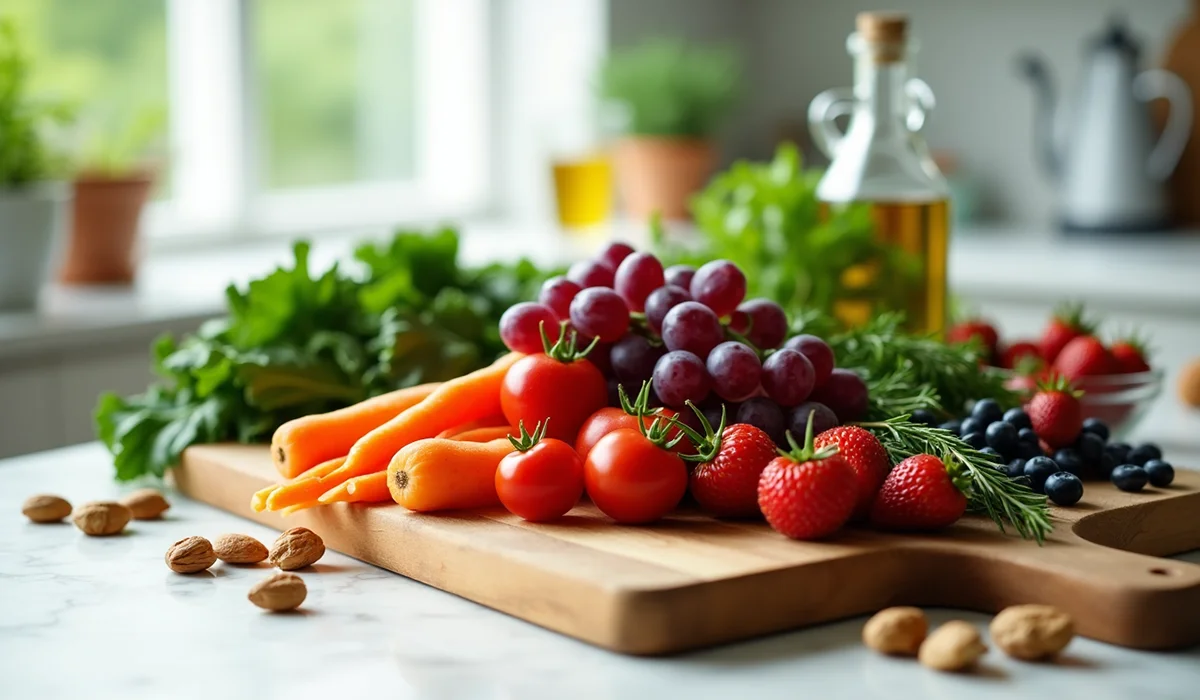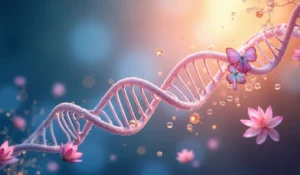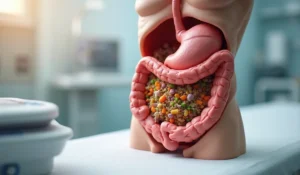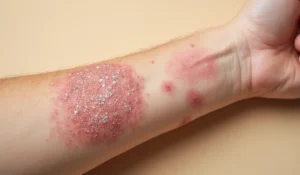Here’s a surprising fact – diet and nutrition alone could prevent almost 25% of all cancer cases. This shows why we need to understand how our food choices affect our health and why a cancer prevention diet is crucial.
Food plays a bigger role in cancer prevention than most people realize. Western countries see about 30% of their cancer cases linked to diet, making it the second biggest risk factor after tobacco. Studies consistently show that people who follow plant-based diets have lower cancer rates. The numbers speak for themselves – every 10 grams of dietary fiber you eat daily can lower your colorectal cancer risk by 10%. The Mediterranean diet has also shown promising results in reducing common cancer risks, including breast cancer and colorectal cancer.
This piece will show you the best cancer-fighting foods and help you create a practical meal plan. You’ll learn strategies to make better food choices and discover the best diet to avoid cancer. We won’t just tell you what to eat – you’ll understand the science behind every recommendation in our cancer-fighting diet plan.
The Science Behind the Best Anti Cancer Foods
The science behind anti-cancer foods shows us amazing ways certain nutrients help curb cancer development. Let’s learn about how these foods protect our cells and what kills cancer cells in the body naturally.
How phytochemicals target cancer cells
Natural plant compounds called phytochemicals have remarkable abilities to fight cancer in multiple ways. These powerful compounds interfere with processes related to cancer, such as cell cycle regulation and tumor growth [1]. Vegetables like broccoli, cabbage, and kale contain potent phytochemicals – carotenoids, indoles, and glucosinolates that slow down cancer growth effectively [2]. These compounds show great potential to influence signaling pathways that are vital for cancer development, including the MAPK pathway and NF-κB signaling [1].
The role of antioxidants and inflammation
Oxidative stress plays a key role in cancer development through reactive oxygen species (ROS) that damage DNA and lead to mutations [3]. Antioxidants act as important defenders against these harmful effects. Studies show that antioxidants like vitamin C work as cofactors for hydroxylases that regulate transcription factors [3]. Chronic inflammation is another major factor in cancer development. It influences various aspects of tumorigenesis, including cellular transformation and metastasis [4].
Understanding nutrient synergies in cancer prevention
Anti-cancer foods’ power often comes from how nutrients work together. Research shows that S-allylcysteine from garlic combined with lycopene from tomatoes works better to prevent gastric cancer [5]. Vitamin D3 paired with genistein shows improved results in stopping cancer cells from growing at lower doses compared to using them alone [5]. These nutrient combinations create stronger protective effects than individual compounds, highlighting the importance of a diverse, plant-based diet for cancer prevention.
Building Your Anti Cancer Diet Food List
A cancer-fighting diet begins with knowing which foods best combat cancer cells. Scientists have found that dietary changes alone could prevent 30-40% of all cancers [6]. Let’s explore the best cancer fighting foods and foods that prevent cancer.
Top 20 cancer-fighting superfoods
Berries lead the pack of potent cancer-fighting foods. Their high anthocyanin content helps reduce cancer risk [7]. Cruciferous vegetables such as broccoli and cauliflower contain sulfur compounds that help fight lung cancer and colorectal cancer [7]. Fatty fish with its omega-3 fatty acids protects against breast cancer and colorectal cancer [7]. Garlic, turmeric, pomegranates, and dark leafy greens round out these powerhouse foods [7]. Onions, rich in quercetin, have also shown potential in reducing cancer risk.
Foods to absolutely avoid
Just two daily ham slices raise colorectal cancer risk by 16% [8]. This makes it vital to remove bacon, hot dogs, and deli meats from your diet. We cooked foods at high temperatures or charred them, which created cancer-causing compounds called HCAs and PAHs [8]. Sugary drinks and highly processed foods need attention too because they cause obesity – linked to 12 cancer types [9]. The link between processed foods and cancer is becoming increasingly clear, emphasizing the importance of a whole food, plant-based diet.
Strategic food combinations for maximum benefit
Food pairs can boost their cancer-fighting properties together. To name just one example, tomatoes with olive oil help your body absorb more cancer-fighting lycopene [10]. Black pepper makes turmeric’s anti-inflammatory properties 2000% stronger, especially when you have healthy fats [10]. Lemon in green tea helps your body use its beneficial antioxidants better [10]. These strategic combinations can enhance the cancer-reducing effects of your diet.
Customizing Your Anti Cancer Diet Plan
Nutrition plans must be customized for each cancer patient. Research shows that nutritional requirements vary by a lot based on individual factors and cancer types [11]. A personalized cancer fighting diet plan is essential for optimal results.
Adapting diet based on cancer type
Each type of cancer requires a unique approach to diet. To name just one example, breast cancer patients who receive steroid treatments often have increased appetite and blood sugar levels [12]. Pancreatic cancer patients don’t deal very well with weight maintenance because of digestive issues [12]. Research shows that cancers have different metabolic needs, which depend on tissue origin and microenvironment [13]. For instance, prostate cancer patients may benefit from a diet rich in lycopene and omega-3 fatty acids.
Modifications during different treatment phases
Nutritional needs change dramatically during treatment. Clinical studies show that malnutrition affects 30-85% of cancer patients [14]. Here are vital modifications based on treatment phase to curb this issue:
- Pre-treatment: Focus on building nutritional reserves and strengthening immune function
- Active treatment: Address side effects like nausea, appetite changes, and taste alterations
- Recovery: Emphasize tissue repair and maintaining healthy weight
Personalizing portions and timing
Recent studies explain why meal timing matters in cancer treatment effectiveness [15]. You should think over extending overnight fasting to 12-18 hours at first. Studies show this can increase treatment effectiveness and reduce side effects [15]. Later, it helps to schedule 6-8 smaller meals throughout the day instead of three large ones [16].
Your portion sizes should match your energy needs. Patients undergoing treatment often just need more calories and protein for healing [16]. Proper nutrition remains vital, even though it’s challenging. Studies show that malnutrition leads to 10-20% of deaths in cancer patients [14].
Working with an oncology nutritionist makes a difference. They can assess your needs and create customized intervention strategies [17]. This patient-focused approach takes into account your treatment type, side effects, and food priorities to develop the best nutrition plan [18].
Implementing Your Anti Cancer Diet
Your anti-cancer diet needs careful attention to food safety and smart planning. We focused on maintaining nutritional value while managing treatment side effects. Here’s how to implement a natural cancer diet effectively.
Weekly meal planning strategies
Your refrigerator needs clear sections to make meal prep easier [19]. Set up specific areas for pre-cut vegetables, fruits, and protein sources. Make several portions of your favorite meals and freeze them for days when you don’t feel like cooking [20]. Stock your pantry with easy-to-prepare items like whole grain wraps, frozen vegetables, and nutritious beverages [19]. Include a variety of fruits and vegetables, whole grains, and plant-based protein sources in your meal plan to ensure a diverse, cancer-fighting diet.
Shopping guides and food storage tips
Food safety is a vital part of this process. The refrigerator temperature should stay at 40°F or below [21]. Fresh or leftover food needs storage within 2 hours of purchase or eating [21]. Raw meat and fish should go in separate plastic bags at the grocery store and in your refrigerator [21].
These storage guidelines will help:
- Use see-through containers for healthy ingredients
- Store whole grain products in the freezer to extend shelf life
- Keep pre-cut vegetables in the front of your refrigerator
- Place nutritious snacks at eye level for easy access [19]
Dealing with side effects and food aversions
Managing side effects needs smart solutions. Cold or room-temperature foods help with taste changes [20]. Start with clear liquids like broth or ginger ale before moving to plain foods if you feel nauseous [20]. Dry mouth symptoms improve when you sip water regularly and add gravies or sauces to meals [1]. Made-to-order food from restaurants offers more safety than buffet-style options [21].
Conclusion
Scientific research shows how our food choices help prevent cancer and support treatment. Smart selection of cancer-fighting foods and their combinations creates powerful dietary defenses against cancer development. The Mediterranean diet, plant-based diets, and other dietary patterns rich in fruits, vegetables, and whole grains have shown significant potential in reducing cancer risk.
Studies prove that small changes make a big difference in knowing how to fight cancer cells. Adding berries to breakfast or mixing turmeric with black pepper works well. These dietary choices become more effective when personalized for specific cancer types and treatment phases. For cancer survivors, maintaining a healthy diet is crucial for reducing the risk of recurrence and improving overall health outcomes.
An anti-cancer diet needs dedication and proper planning. The initial experience might feel daunting, but breaking it into smaller steps makes everything easier. Creating shopping lists and meal prep strategies helps. Healthcare providers can guide you to adjust your diet during different treatment phases.
Dietary changes work best as part of a complete health plan. Food choices are important yet represent just one part of fighting cancer. This knowledge about anti-cancer foods and practical strategies helps us make better decisions that support our body’s natural defense systems against cancer. By following WCRF/AICR guidelines and adopting a cancer-free diet, we can significantly reduce our cancer risk and improve overall health.
References
[3] – https://pmc.ncbi.nlm.nih.gov/articles/PMC10045152/
[4] – https://pmc.ncbi.nlm.nih.gov/articles/PMC6704802/
[5] – https://pmc.ncbi.nlm.nih.gov/articles/PMC5411786/
[6] – https://pmc.ncbi.nlm.nih.gov/articles/PMC526387/
[7] – https://cccnevada.com/the-20-best-foods-to-include-in-your-diet-for-cancer-prevention/
[11] – https://pmc.ncbi.nlm.nih.gov/articles/PMC9600754/
[13] – https://www.sciencedirect.com/science/article/pii/S153561082030204X
[14] – https://www.cancer.gov/about-cancer/treatment/side-effects/appetite-loss/nutrition-hp-pdq
[15] – https://www.aicr.org/resources/blog/time-restricted-eating-and-cancer-care/
[16] – https://www.mskcc.org/cancer-care/patient-education/eating-well-during-your-treatment
[17] – https://baptisthealth.net/baptist-health-news/cancer-and-nutrition-individualized-approach-is-key
[18] – https://nhcancerclinics.com/blog/nurturing-optimism-the-role-of-nutrition-in-cancer-treatment/
[19] – https://www.aicr.org/resources/blog/build-a-cancer-fighting-fridge-in-five-steps/
[20] – https://www.ucsfhealth.org/education/nutrition-plans-for-cancer-patients-undergoing-treatment








